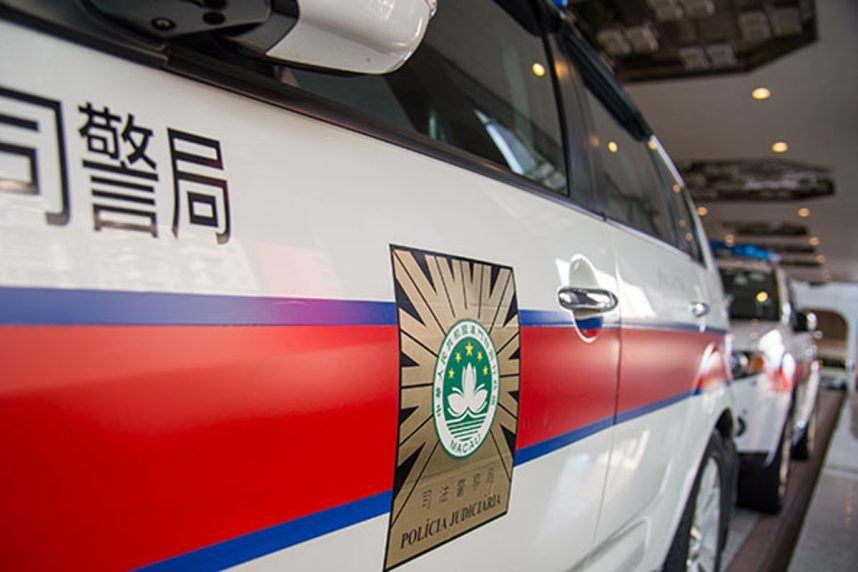Macau Takes a Stand Against Illegal Gambling: New Regulations Enforced
Posted on: October 29, 2024, 12:08h.
Last updated on: October 28, 2024, 12:13h.
The gambling industry in Macau, famously known as the “Gambling Capital of the World,” is undergoing significant changes as the government intensifies its fight against illegal gambling activities. In a decisive move, lawmakers within the Macau Legislative Assembly have passed comprehensive legislation aimed at curtailing illicit gambling operations, which has become a pressing issue for the region.

New Legislation Comes into Effect
Earlier this month, the newly crafted Law to Combat Crimes of Illegal Gambling was officially signed into law by Assembly President Kou Hoi In and Chief Executive Ho Iat Seng. This law, which took effect on October 29, addresses a multitude of illegal gambling issues that have plagued the region, from unlicensed online gambling activities to unregulated money exchanges. A key highlight of this legislation is the severe penalties imposed on offenders: those caught gambling illegally may face up to six months in prison, while operators of illegal gambling rings could receive sentences of up to eight years.
The legislation also criminalizes the act of providing loans to gamblers in exchange for a share of their winnings. Violators can expect prison sentences of up to five years, signaling Macau’s serious intent to discourage any financial arrangements that facilitate illegal betting. Moreover, the law prohibits residents from participating in the Hong Kong Lottery, specifically its popular Mark Six game, further tightening the hold on gambling activities within the enclave.
Unmasking the Underworld: Currency Exchanges and Side Bets
One of the more consequential provisions in the law is its ruthless stance against “under the table” betting, where high-rollers often bet substantial amounts outside the official gambling tables, typically through junket operators. This practice has reportedly cost the Macau government over $1 billion from 2013 to 2021. The ongoing crackdown indicates not just an attempt to reclaim financial losses but also to restore credibility to Macau’s gaming industry.
The new legislation specifically targets illicit money exchange networks that facilitate unlawful cash transfers from mainland China to Macau. Due to Chinese regulations restricting the amount of cash mainlanders can bring into Macau, many gamblers have circumvented this rule by utilizing unlicensed intermediaries to convert electronic payments into cash upon arrival. The law now stipulates severe penalties, including up to five years in prison for anyone engaging in unauthorized currency exchanges aimed at backing gambling.
As part of its commitment to enhancing enforcement, Macau’s Judiciary Police have heightened their surveillance of financial transactions within the region. Recent operations led to the detention of 42 individuals linked to unlicensed currency exchange activities, underscoring the government’s proactive approach to combating illegal operations.
Shifting Focus: Adapting to New Market Dynamics
With the Chinese government tightening its wrist on cash movement into Macau, the region’s major casinos are adapting to a changing economic landscape. In light of the new regulations, casino operators are redirecting their focus from high rollers to mass-market and premium mass gambling demographics. This strategic pivot aims not just to comply with the law but also to ensure sustainable growth in a rapidly evolving market.
Furthermore, the industry is witnessing substantial investments in non-gaming attractions, aimed at diversifying income sources and keeping hotel rooms occupied. Despite a remarkable 31% increase in gross gaming revenue in 2024 compared to 2023, this figure still lags 23% behind the pre-pandemic levels of 2019. Operators recognize that a diversified offering encompassing entertainment, events, and hospitality is crucial for attracting a broader audience and mitigating the impacts of the ongoing regulatory crackdown.
Conclusion
The recent legislative efforts in Macau represent a determined stance against illegal gambling, showcasing the government’s commitment to maintaining control over its lucrative gaming sector. As these regulations come into effect, the landscape of gambling in Macau is set to undergo a remarkable transformation. The focus on compliance and alternative revenue streams is not just a necessity for survival but an opportunity for the region to recalibrate its identity in the global gaming arena. As Macau navigates these changes, it remains to be seen how these new policies will ultimately reshape the experience for gamblers and tourism in this unique enclave.













